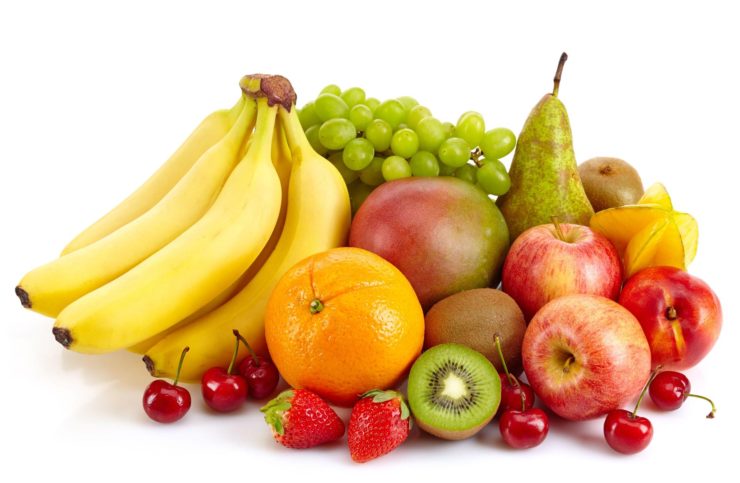
Reading Time: Four Minutes
This is the seventh in a series of posts about depression and more importantly, how we can take steps to hopefully keep it under control.
After I was diagnosed with depression, I was convinced I could limit both the frequency of my ‘bad’ days, and also the severity of those days. I researched everything I could about how other sufferers deal with their condition, and listed all the advice I thought could work for me. This resulted in fifteen steps, which I’m covering over fifteen weeks, and this is number seven.
Step 7 – Service the Engine
AKA – Nutrition Overhaul
This point is so significant I nearly entered it at number one. It’s not as important as realisation, seeing a doctor, or getting therapy, but I could put forward a compelling argument to move it to the top three. Fact is, you’ll be in a better place to tackle this step after completing those first six.
This relates to the body, and centres, as the title suggests, on what we eat.
For years, food has fascinated me. My diet consists mainly of vegetables, fruit, whole grains, legumes, nuts, seeds, fish, good oils, and a host of herbs and spices. I occasionally eat what I consider ‘bad’ foods like meat, a doughnut, or a pizza. I take supplements and drink three pints of water a day.
We cannot possibly get our minds in reasonable working order if our bodies are neglected.
Let’s use a car analogy. Two people each have the same vehicle. One fills it with top-grade fuel, changes the oil every six months, and services it at 10,000 miles, using the best parts. It gets cleaned most weeks, and the levels are checked, along with tyre pressures. That person drives sensibly and doesn’t thrash the engine.
The other driver uses the cheapest fuel they can find, rarely checks the fluids, and tops it up with reconditioned oil. The tyres get air if they look flat, the services take place at twice the recommended intervals, using poor parts, and they drive their car hard.
Now, you know the question I’m going to pose as well as the answer.
Which vehicle runs the most smoothly, efficiently, and with fewer breakdowns?
Exactly.
It’s the same with our bodies. We’re far more complicated and wonderful than an engine, but we are just that. If we neglect ourselves, particularly by consuming poor fuel, we won’t run optimally.
If our body isn’t firing on all cylinders, neither will the mind.
It’s difficult to focus on what we eat – especially when depressed – because comfort food makes us feel better. But we need a whole host of nutrients to perform at our best. Our bodies can’t function properly by subsisting on a diet high in unhealthy fats, carbohydrates, or poor forms of animal-derived protein, with no fruit or vegetables.
This is fact – science has proved it.
To get on top of mental illness, we have a simple choice. Continue eating inferior food and drinking soda, I won’t judge you, we’re all free to make our own decisions.
Or, consider a diet overhaul.
Many of us still doubt that changing what we eat will have any difference. Here’s another story that illustrates my point. In medieval times, one of the biggest killers wasn’t cancer, or obesity, but scurvy. In fact, between 1500 and 1800, it’s estimated this disease killed at least two million sailors. Mariners were particularly prone, especially during long periods at sea.
The solution was simple: consume more vitamin C from fruits like oranges.
If eating oranges cured one of the biggest diseases ever, consider what proper nutrition can do for us.

I enjoy a burger and fries as much as anyone, I still drink wine occasionally, and I’ll be a sad man when they stop making Snickers. But I’m strict with how often I partake. The odd bar of chocolate, beer, or ice cream won’t cause depression, but it’s worth reducing poor food choices. I feel terrific as a consequence of my diet, and my mind is in great shape as well.
Evidence points towards specific foods helping in the fight against mental illness. The classic example is the Mediterranean diet, consumed in such countries as Italy, Greece, and Spain, where fewer people suffer from depression. A diet rich in vegetables, fruits, fish, whole grains, and olive oil reduces the risk.
Nuts, in particular, are worth mentioning. Low levels of selenium are linked to a higher risk of depression. Brazil nuts, as one example, contain a lot of this mineral.
Scientific studies have shown that a lack of vitamin B can affect our temperament. Look for foods containing folic acid, particularly green, leafy vegetables, preferably only lightly cooked.
Research has suggested that omega 3, found in fish oils, may improve mood. Eating food like tuna, mackerel, or salmon, flax or rapeseed oil, or munching on pumpkin seeds will help.
Serotonin is a chemical in our brains that makes us feel good. Low levels of this substance are connected with depression. It is derived from tryptophan, which our bodies can’t produce, so we need to source foods that do contain it such as cashews, tuna, salmon, beans, and seeds.
Finally, drink enough water. Arguably this doesn’t come under nutrition and demands a point to itself, but I treat it as something I consume, so it fits.
I try to drink three pints a day. After spending a lot of time peeing, it takes a while to get used to. My trick to avoid constantly going to the toilet is having an entire pint three times a day as opposed to sipping gradually – one when I wake up, then around lunch, and finally early evening. My body requires this amount ideally; you might need the same, maybe less, maybe more. The internet has loads of information on how much to drink according to our individual needs.

Why? We cannot function without it. It is essential for life and for the body to work efficiently. I wouldn’t go as far as saying it treats depression, but there’s little point in eating healthily, quitting stimulants, exercising, and everything else if you’re dehydrated.
Think of food as your fuel and water as the engine oil.
Next Week
Step 8 – Animals make Simple Connections
AKA – Exercise
You can read about my hike across Scotland, while coming to terms with the fact I had depression, in my latest book – High and Low. Just click on the image for details.
